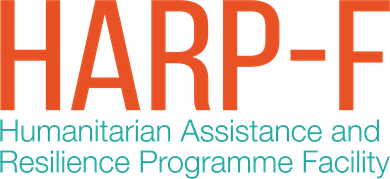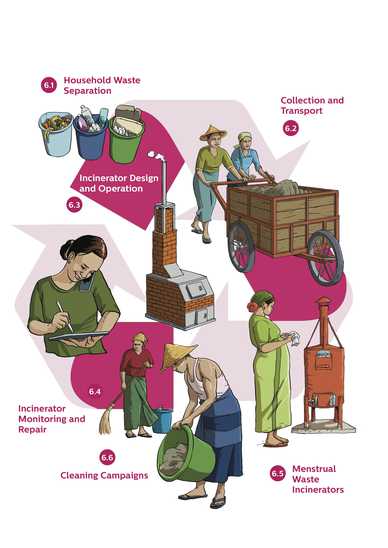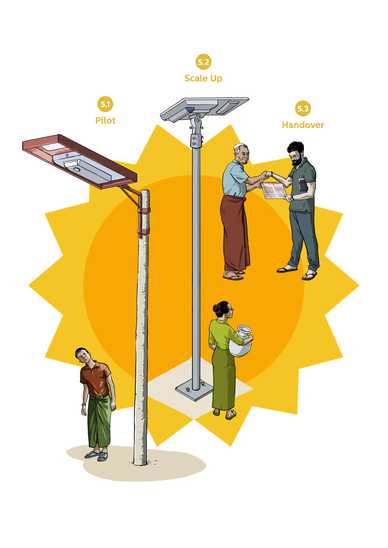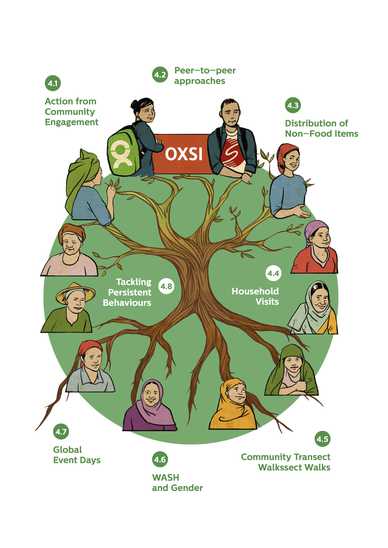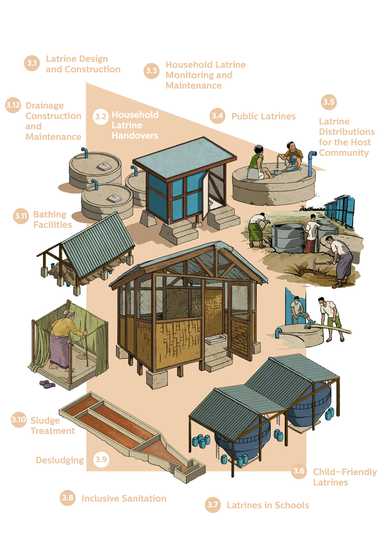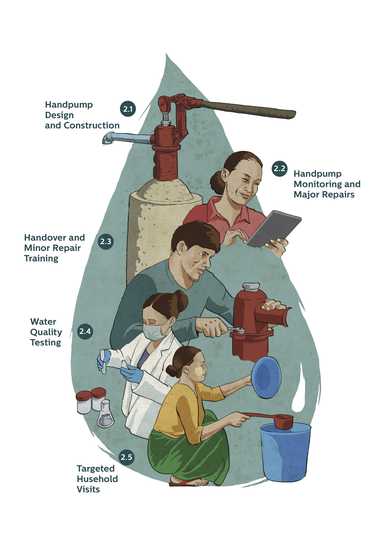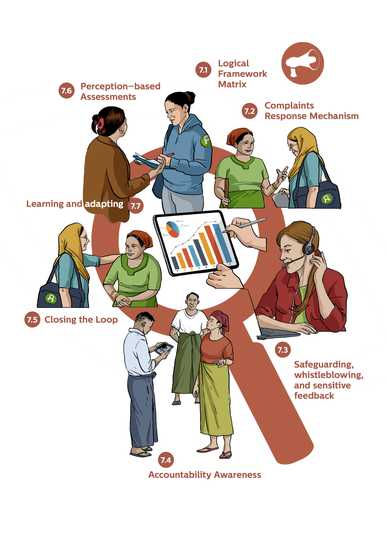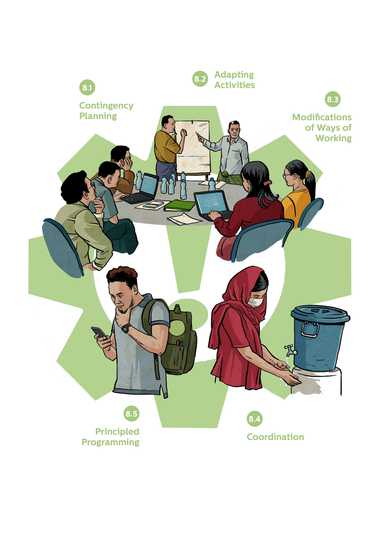SOLID WASTE MANAGEMENT
In many countries, including Myanmar, municipal solid waste management (SWM) is still not prioritised outside of large cities, leaving many households to deal with solid waste on their own. Sophisticated SWM, especially disposal, is often too expensive for humanitarian programmes, leading to imperfect and unsustainable solutions, which becomes particularly problematic in prolonged emergencies. However, SWM plays a key role in WASH programming to reduce public health risks and keep the environment clean. WASH agencies collect, transport, and dispose of solid waste while drawing the link between SWM and disease reduction in hygiene promotion sessions and engaging communities to help keep their surroundings clean.
